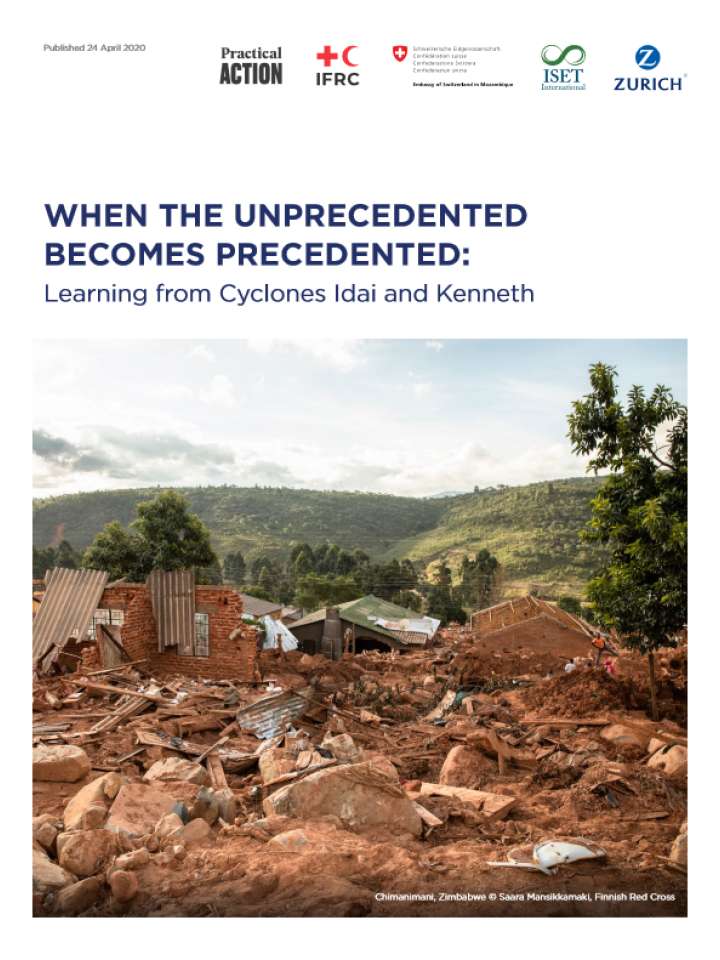When the unprecedented becomes precedented: Learning from Cyclones Idai and Kenneth
The study focuses on why Cyclones Idai and Kenneth resulted in disasters in Malawi, Mozambique, and Zimbabwe, taking into account the specific country contexts. It draws on five weeks of fieldwork, over 100 interviews with stakeholders from government, UN agencies, donors, NGOs and humanitarian response agencies, academics, and community members, and the review of over 100 secondary sources to highlight key opportunities for building resilience.
This report provides a review of the systems and actions that helped to reduce damages, while also delving into the factors that constrained people and systems’ resilience. It also highlights lessons learned and points towards opportunities for increasing resilience to future hazards (pp. 42-49). Underpinning these findings is the recognition that in countries where socio-economic vulnerabilities converge with degraded natural environments and a changing climate, the process for building resilience and reducing risk will be a long and arduous one. A key aspect of this will be to change practices at the community level and at the national level via policies and practices.
Explore further
